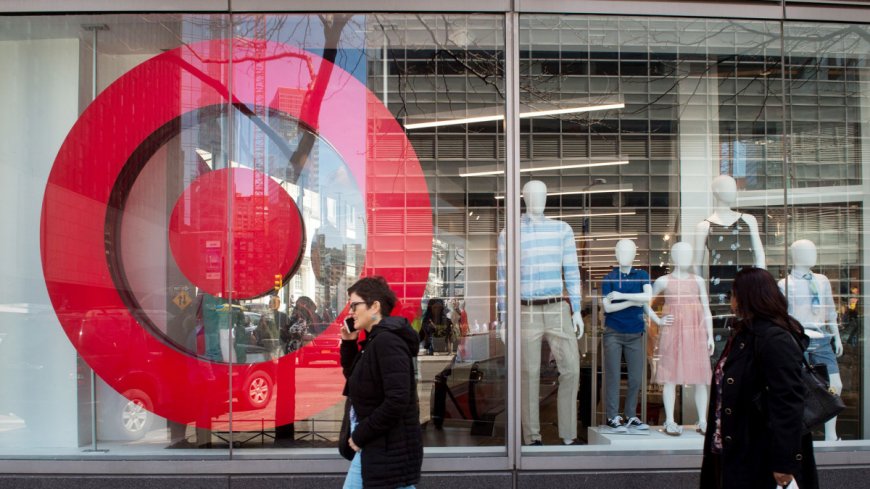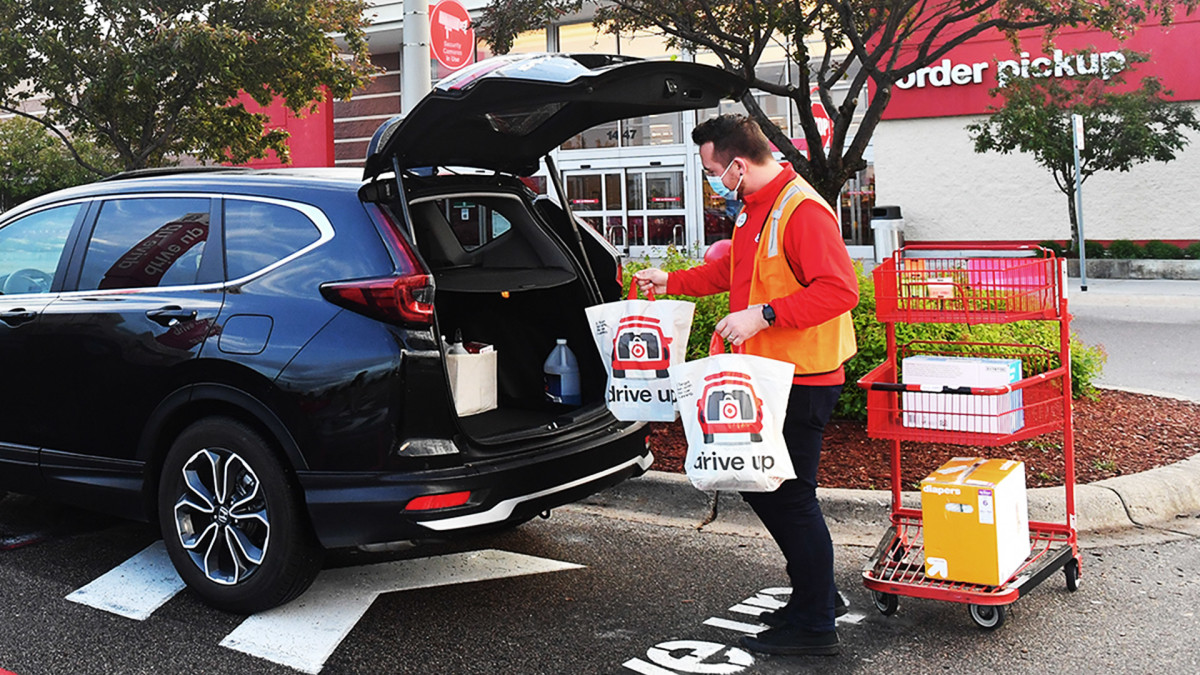Forget retail theft: Target has solved a bigger problem
The retailer has quietly made some major moves that position it to take on Walmart and Amazon this holiday season.

Target has invested heavily in its in-store experience.
The chain has made its stores destinations by adding its owned-and-operated brands to a selection of partner-store-within-a-store concepts. These include Starbucks, Ulta Beauty, Walt Disney and Apple.
In many ways, Target has become the new mall, a place people visit even when they don't have a specific purchase in mind. That's a strong position for the brand to be in, but what many shoppers may not know is that Target (TGT) - Get Free Report has made major infrastructure changes that go way beyond its in-store experience.
Related: Here's Costco's plan for a membership-price increase
While customers certainly know of Target's website, the company has not been associated with quick delivery the way rivals Amazon and Walmart have been. That's largely because the company does not have the same infrastructure its rivals have built to support delivery.
Instead of spending billions to build out its infrastructure as Walmart and Amazon (AMZN) - Get Free Report did, Target took a different path. In 2017 it bought Shipt for $550 million and has slowly built out its same-day delivery service.
Target's method is cheaper, but no less successful, than the method Walmart and Amazon use, at least in the markets where the Minneapolis company has stores and fulfillment centers.
In 2023, Target has been widening its network, positioning the company as a same-day-delivery rival to Walmart and Amazon this holiday season. Image source: Target
Target invests in same-day delivery
Target has quietly built out a truly omnichannel model without spending the billions Walmart and Amazon have. It's sort of an old-school approach that enables customers to shop in-store and via the chain's app and website for same-day or two-day delivery.
Many of the chain's stores have what it calls sortation centers, where workers prepare online orders for same-day local delivery. That's an area in which Target began a major investment at the start of the year.
"We plan to invest $100 million to expand our flexible, best-in-class supply-chain-sortation network to more than 15 facilities by the end of 2026, bringing our next-day delivery capabilities to guests across major U.S. markets," the chain said in February.
"Sortation centers and our Last Mile Delivery capabilities support our guest experience and benefit our business — helping us deliver more efficiently and faster, at a lower cost while increasing our capacity."
What Target calls a stores-as-hubs strategy gives it the ability to compete with Walmart and Amazon during the holiday season.
"Bigger, faster, better than before: These moves demonstrate the transformative power of our stores-as-hubs strategy, which leverages our store network as a launchpad for online orders," Target added.
"Sortation centers represent the next phase, ensuring faster delivery for guests, saving shipping costs, and fueling our long-term growth."
Target: Consumers are under pressure
Target CEO Brian Cornell spoke about the chain's third-quarter results during an earnings call. In it, he explained that while the company's same-store sales were down 4.9%, he remained confident of its plan.
"We're playing the long game, investing in our stores, our team, our digital capabilities, and our assortment to provide the newness, value, and convenience our guests want for this holiday season and beyond," he said.
The CEO also noted the importance of his chain's stores. "At the heart of it all is our focus on being our guests' happy place and delivering the joyful shopping experience that makes Target," he added.
Cornell says economic pressures have crimped customers' spending.
"Overall, consumers are still spending, but pressures like higher interest rates, the resumption of student loan repayments, increased credit card debt, and reduced savings rates have left them with less discretionary income, forcing them to make trade-offs in their family budgets," the executive said.
"For example, this year, we've seen more and more consumers delaying their spending until the last moment."
Unlock the secrets of the stock market with Real Money Pro. Gain direct access to elite portfolio managers' top stock picks and time-tested investment strategies. Embark on your journey to financial success — start now.
What's Your Reaction?


























































